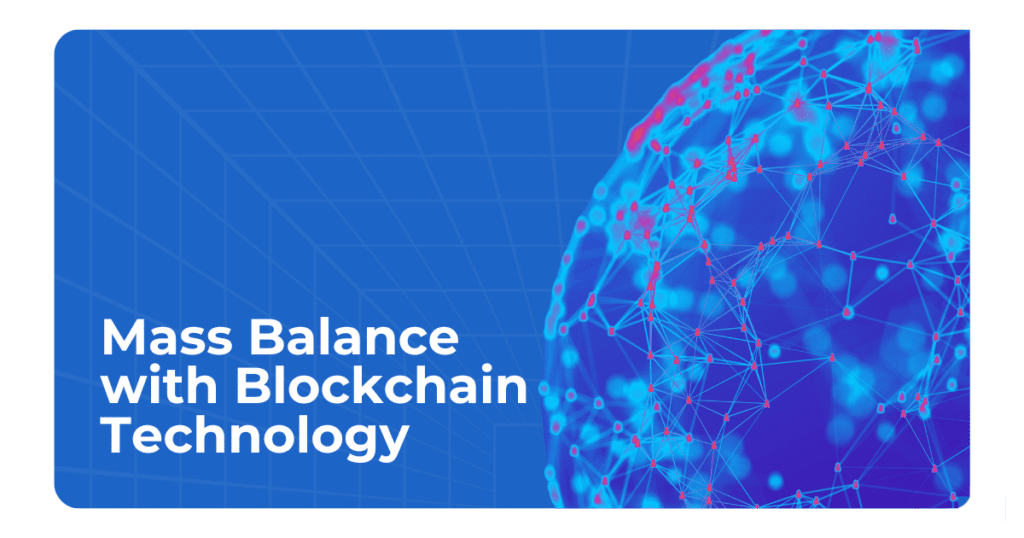

Mass Balance with Blockchain Technology: Innovation and Transparency in the Supply Chain
La gestión del balance de masas en la cadena de suministro es crucial para garantizar la transparencia y la precisión en el uso de los materiales. Este concepto, que asegura que la cantidad de material reciclado o sostenible declarada sea exacta, puede beneficiarse enormemente de la implementación de la tecnología blockchain. Gracias a la blockchain, se refuerza la trazabilidad de materiales a lo largo de toda la cadena de valor, permitiendo verificar el origen, el uso y el destino final de los recursos. Además, el uso del Digital Product Passport facilita el acceso a información verificada sobre la composición y sostenibilidad de cada artículo, aportando mejoras significativas en términos de confianza, transparencia y cumplimiento normativo.
What is Mass Balance?
Mass balance is a method used to account for all incoming and outgoing materials in a production process, ensuring that statements about recycled or sustainable material content are accurate. This approach is essential for companies seeking to comply with sustainability regulations and build consumer trust.
Methods for Calculating Mass Balance
Moving Average Method: Calculates the percentage of sustainable materials used over a specific period. This percentage is then applied to the manufactured products.
Credit Method: Assigns "credits" for the amount of sustainable material used, which can be applied to specific products.
Volume Reconciliation Method: Compares the quantities of recorded sustainable materials with the final production to ensure accuracy.
Advantages of Blockchain in Mass Balance

Transparency and Traceability
Immutable Record: Every transaction or material movement is recorded in an immutable ledger. This ensures that all information about material usage is accurate and verifiable at any time.
Distributed Access: All participants in the supply chain have access to the same information, eliminating discrepancies and improving trust among parties.
Security and Reliability
Tamper Protection: The decentralized nature of blockchain makes it extremely difficult to alter records, ensuring data integrity.
Simplified Audits: With immutable and accessible records, audits can be conducted more efficiently and with greater confidence in data accuracy.
Efficiency and Cost Reduction
Automation: Smart contracts can automate data verification and recording, reducing the need for manual intervention and minimizing errors.
Simplified Integration: Blockchain can integrate with existing systems, facilitating adoption and improving operational efficiency.
Implementation of Blockchain
Implementing blockchain technology in mass balance management requires a structured approach. It is essential to establish system boundaries and applicability to ensure effective implementation, which includes defining which materials and processes will be subject to mass balance. Additionally, assigning clear roles and responsibilities for system implementation and maintenance is crucial for its success. Developing and maintaining documented procedures covering all aspects of mass balance, from material recording to auditing and verification, is also important. Regular evaluations and audits should be conducted to ensure the system functions correctly and meets established standards. Finally, procedures must be established to handle non-conformities and ensure prompt corrective actions.
Blockchain, the technology of a sustainable future
Integrating blockchain technology in mass balance management offers a robust solution for improving transparency, security, and efficiency in the supply chain. By adopting this technology, companies can ensure that their statements about the use of recycled or sustainable materials are accurate and verifiable, strengthening consumer trust and complying with environmental regulations.
In a world increasingly concerned with sustainability and transparency, blockchain emerges as an essential tool for advancing towards more responsible and efficient supply chain management.
Products
Digital Product Passport
Descentralized platforms
Descentralized Identity
Verificable Credentials
About us
Team
Methodology
Our Mission
Connect
Cristòfol Grober 4, local 35
17001 - Girona
info@blueroominnovation.com
Follow us
Copyright © 2024 Blue Room Innovation Privacy Policy - Legal Warning - Cookies Policy